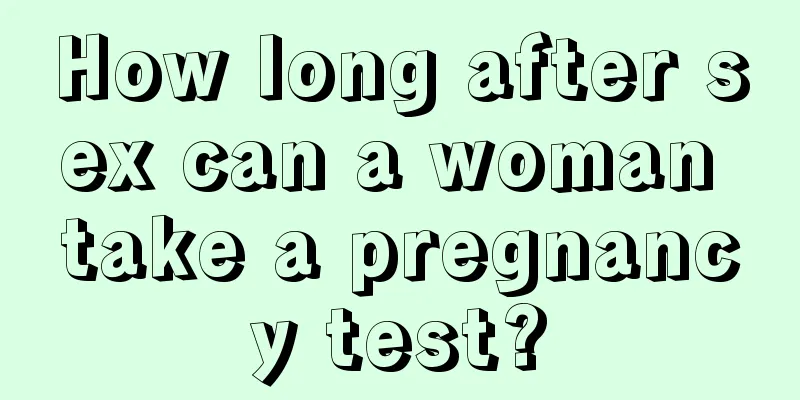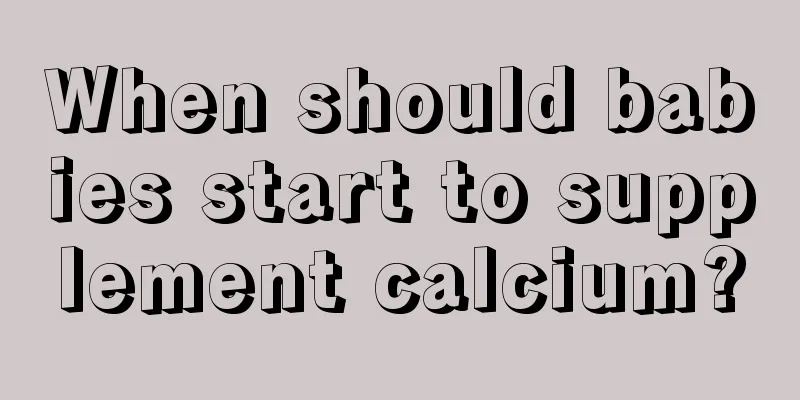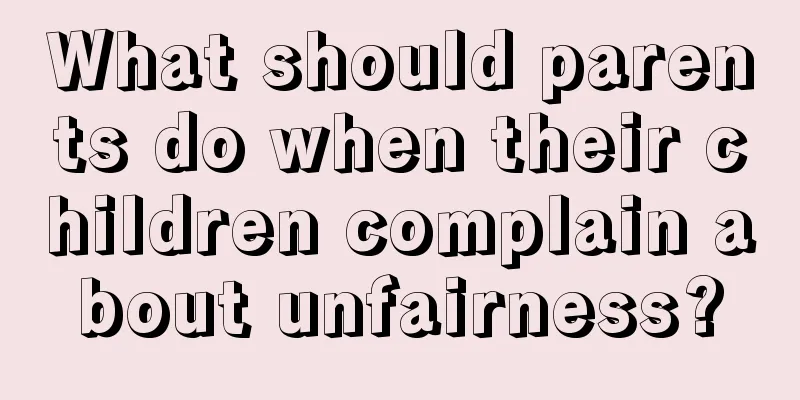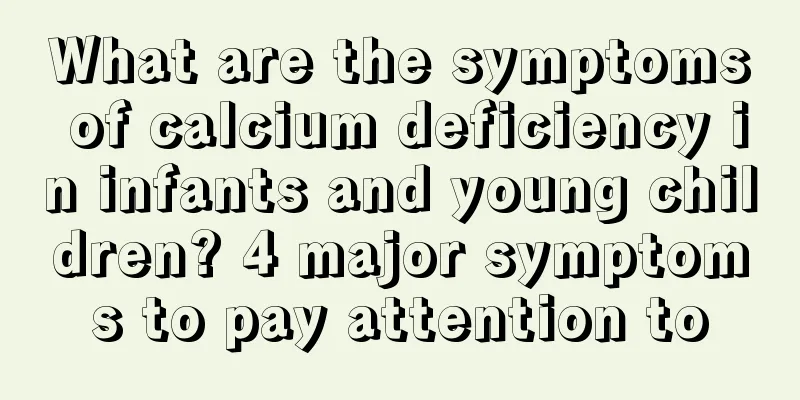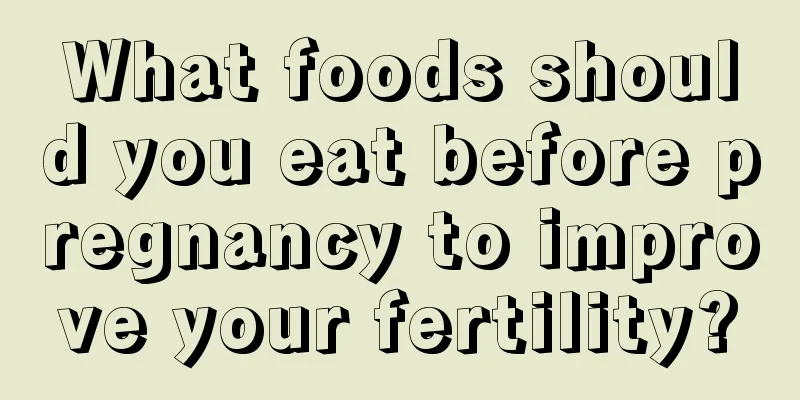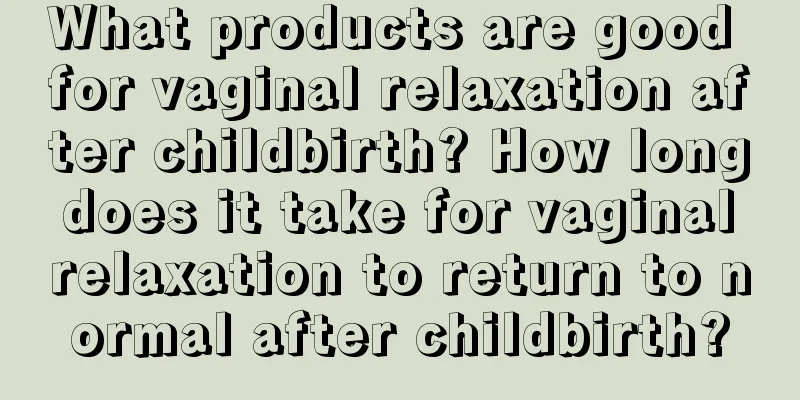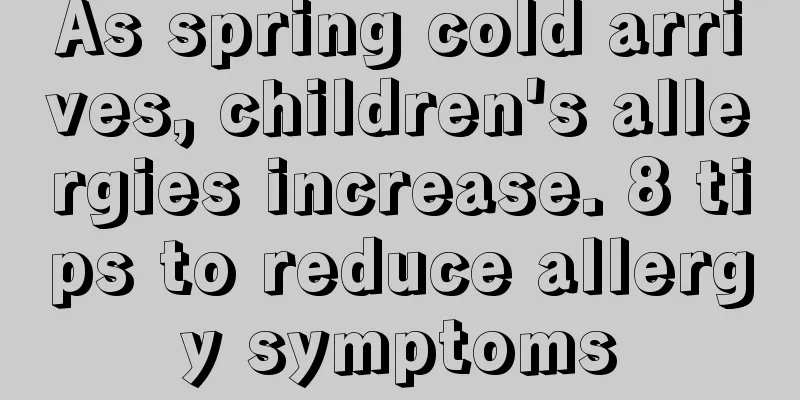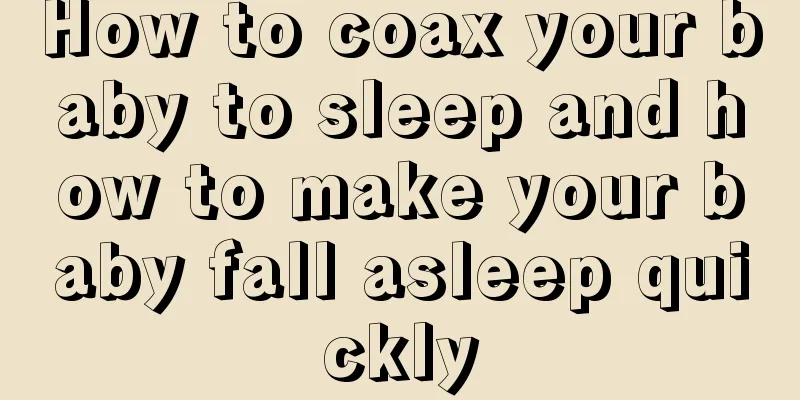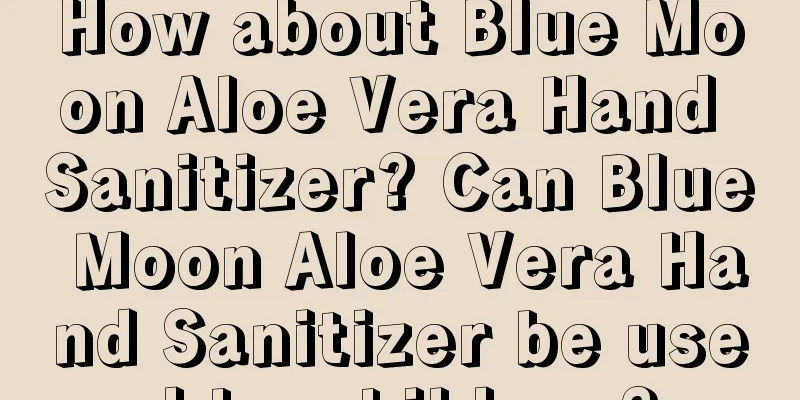How to determine whether the baby has a febrile convulsion based on the clinical manifestations of febrile convulsion?
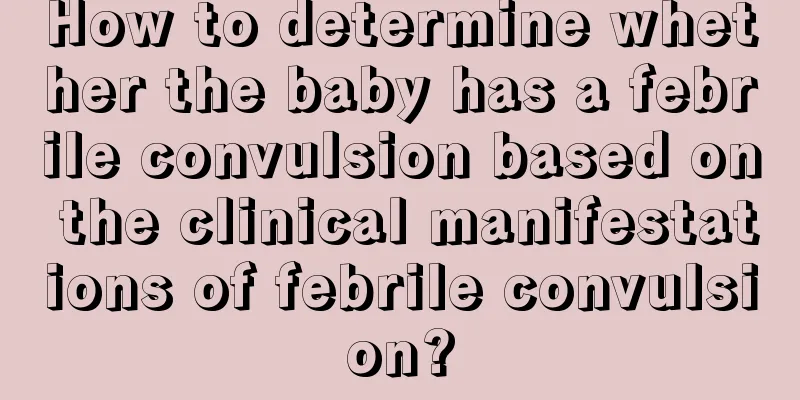
|
What are the clinical manifestations of febrile convulsions? How to judge whether the baby has a febrile convulsion? Let's introduce to you what febrile convulsions are. Is it related to hot weather? Are febrile convulsions more likely to occur in summer? How to tell if your baby is having a febrile seizureFebrile convulsions usually occur in children between 3 months and 5 years old. The convulsions usually last within 5 to 10 minutes, but may also last for more than 20 minutes. Symptoms include clenched jaws, upturned eyes, limb twitching, unresponsiveness to calls, purple face, and foaming at the mouth. If the following conditions occur during the seizure: the child is younger than 6 months old or older than 6 years old, the body temperature is less than 38 degrees when the seizure occurs, there are multiple seizures in one day or the seizures last for a long time, we call this a complex febrile seizure. The prognosis of this type of febrile seizure is uncertain, and doctors and parents need to pay close attention to the child for a long time. Clinical manifestations of febrile seizuresCauses and clinical manifestations of febrile seizures in children: Causes: Febrile seizures are the most common convulsions in children, mostly caused by various infectious diseases, with upper respiratory tract infections being the most common. Febrile seizures do not include convulsions that occur with fever caused by encephalitis or meningitis. Age, genetic factors, and growth and development status before the seizure are the main factors affecting its prevalence. Clinical manifestations: Convulsions usually occur within 12 hours after fever. Most are generalized tonic-clonic or clonic seizures, a few are tonic or atonic seizures, and 15% are unilateral or localized seizures. Most seizures are short-lived, with only one seizure occurring during a fever. One-third of children have recurrent febrile seizures later. Convulsions lasting more than 20 minutes, with recurrent seizures (about 1/4) or localized seizures within 24 hours are called complex febrile seizures. Only 2% to 4% of febrile seizures turn into epilepsy later. The Medical Education Network has compiled the following high-risk factors that are associated with subsequent conversion to epilepsy: onset within 6 months or after 6 years of age, family history of epilepsy, abnormal psychomotor development, complex febrile seizures, neurological abnormalities after seizures such as Todd palsy, and epileptic EEG abnormalities one week after the fever subsides. What to do if you have a febrile seizureFebrile seizures are sudden increases or decreases in body temperature that cause abnormal electrical activity in the brain, which in turn causes spasms in the muscles of the entire body. About 4% of children will experience one or more febrile seizures during infancy. Febrile seizures usually occur when the body temperature rises sharply, or within 24 hours of the onset of fever, and occasionally when the fever subsides. They are characterized by whole body rigidity, upward rolling of the eyes, spasms or twitching of the limbs, and may be accompanied by a brief loss of consciousness. Not all children will have febrile seizures. In fact, febrile seizures are very familial, and only a small number of children react to a sudden increase or decrease in body temperature. Moreover, febrile seizures are not limited by temperature. Simply put, some children will not have seizures every time they have a fever of 40℃, but some children may have seizures when their fever reaches 38.5℃. Once a child has a febrile seizure at home, parents must remain calm, so as to help the child to the greatest extent. Specific treatment methods for febrile seizures: Let your child lie flat on the floor or bed, away from hard and sharp objects to prevent accidental injury, turn your child's head to one side to prevent accidental inhalation, and loosen your child's collar or any clothing that may affect breathing. Convulsions usually last from a few seconds to a few minutes. If the convulsion lasts for more than 15 minutes, please call 120 emergency number immediately. |
Recommend
What calcium tablets are best for children with calcium deficiency? What calcium supplements are best for children with calcium deficiency?
We all know that children need enough nutrition t...
What are the necessary items for postpartum recovery? Is it necessary to do postpartum recovery?
Pregnancy and childbirth are something that almos...
The difference between blue and green Ariel laundry beads. How many Ariel laundry beads should be put in at a time?
Ariel's laundry detergent beads come in sever...
What to do if your milk is too thin? What are the reasons for low milk supply?
Generally, mothers will breastfeed their children...
What should not be eaten with Shatian grapefruit? Can pregnant women eat Shatian grapefruit?
Shatian pomelo is a variety of pomelo. This kind ...
Is the pregnancy test stick disposable? It is definitely disposable.
Many people have never seen or used a pregnancy t...
Can I keep a cat while pregnant? What should I pay attention to when keeping a cat while pregnant?
Many people keep cats before they get pregnant, b...
Can children with anemia drink goat milk powder? What can children with anemia eat to replenish blood the fastest?
Usually it is normal for children to be anemic. M...
Can balance ball exercise help you lose weight? It is the most suitable for postpartum weight loss.
The body shape cannot be restored after childbirt...
What causes back pain during mid-pregnancy? What causes fetal arrest?
Many pregnant women will experience back pain dur...
What causes premature birth in pregnant women? What are the causes of premature birth in pregnant women?
Everyone must have heard of premature birth in li...
How many diapers should babies use at night?
It depends on the age. Children under 1 year old ...
How about Shunshuner wet wipes? Are Shunshuner wet wipes easy to use?
Shunshuner wet wipes have a very high status in t...
What should pregnant mothers do when they have toothache? Can they take medicine for toothache during pregnancy?
Some women have toothaches during pregnancy, but ...
What is the reason for blood in breast milk? What should I do if there is blood in breast milk?
Many breastfeeding mothers may have experienced b...
